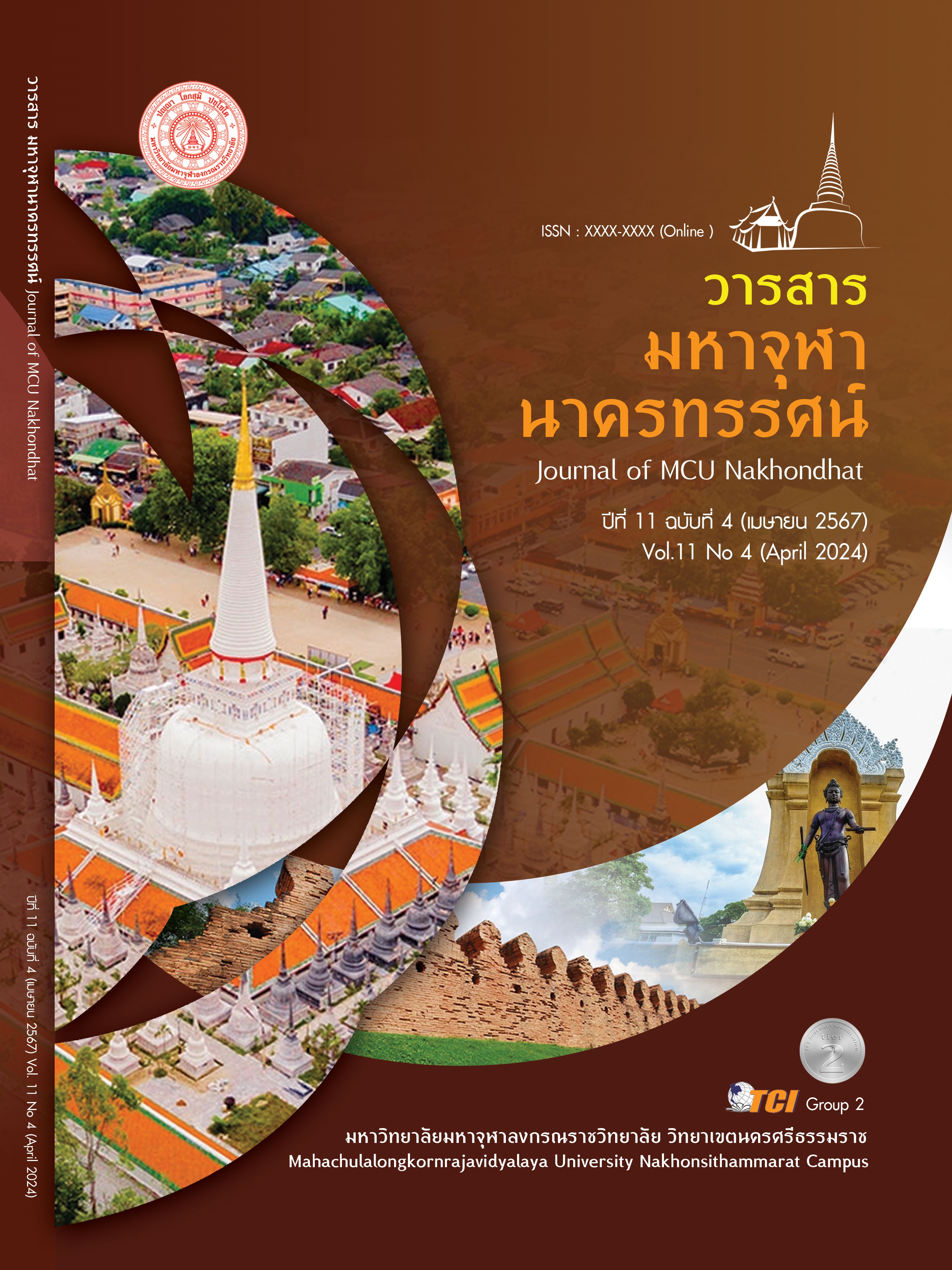GUIDELINES FOR USING POWER OF ADMINISTRATORS IN PRIVATE UNIVERSITIES IN GUANGXI
Main Article Content
Abstract
The purpose of this research is to evaluate the ways of using authority of administrators in private universities in Guangxi. The sample of this research is 217 administrators from 6 private universities in Guangxi using random sampling. systematically from private universities with Krejcie and Morgan sampling tables. The experts in evaluating the adaptability and feasibility of the guidelines were seven experienced administrators at a public university in Guangxi. The research tool is questionnaire with confidence at the .96 level. The questionnaire consists of 4 areas: 1) power relations between the central government and local government 2) power relations between government agencies 3) power relations in society and 4) power relations within the university. Statistics for data analysis include percentages, means, standard deviations. and content analysis The results of the research found that the results of the evaluation of the guidelines for using authority of administrators in private universities in Guangxi were found to be at the highest overall level. When considering each aspect, it was found that the greatest was power relations within the university, followed by power relations in society. Power relations between government agencies and the least are the power relations between the central government and the local government, respectively. The power relations of the central government and the local level It arises from the relationship between power between governments. social power relations as well as internal power relations within the university. shows the importance of power Diversity of regulatory disciplines But it also has to do with achieving the goals of a university that serves society. Therefore, we are committed to building a new relationship between universities, government and society that encompasses the organization's management of standardized, systematic leadership.
Article Details

This work is licensed under a Creative Commons Attribution-NonCommercial-NoDerivatives 4.0 International License.
References
Abdullah, M., & Ali, S. (2013). Optimizing the legal structure of private higher education institutions in Malaysia: A policy analysis. Malaysian Journal of Education Policy, 6(6), 1-15.
Ahn, J. (2022). The role of private higher education in the global knowledge economy: Policy challenges and opportunities. Journal of Higher Education Policy and Management, 42(3), 235-251.
Ahn, S., & Kim, S. (2012). Corporate governance of Korean private universities: A comparative analysis of board structures and practices. Higher Education, 64(2), .225-242.
Altbach, P. G. (2006). Private higher education: A global revolution. UNESCO: International Institute for Educational Planning.
Altbach, P. G., & Peterson, C. (2003). Private higher education: A global revolution. Baltimore, MD: The Johns Hopkins University Press.
Armstrong, E. A., & Hamilton, S. (2013). Governance and performance in higher education: Theory and evidence from the UK. Economics of Education Review, 32(2013), 225-237.
Bray, M. (2013). Global trends in private higher education. European Journal of Education, 48(1), 21-34.
Breneman, D. W., & Pusser, B. (2008). The challenge of private higher education in the 21st century. Baltimore, MD: The Johns Hopkins University Press.
Brennan, J., & Molloy, E. (2008). Corporate governance in Irish higher education: A legal analysis of the Hunt Report. Legal Studies, 28(4), 565-590.
Brown, D. (2019). Private higher education law: A review of policy and practice. Journal of Legal Studies in Education, 38(2), 121-145.
Bruni, L., & Zoli, M. (2011). The governance of Italian private universities: A legal and empirical analysis. European Journal of Higher Education, 1(4), 265-280.
Chapple, C. (2008). Corporate governance in British higher education: A legal and regulatory analysis. Legal Studies, 28(4), 591-615.
Chen, X.B.,& Dong, S.Z. (2005). Corporate governance structure of private universities: Theory, practice and model selection. Educational Development Research, 25(12), 25-39.
Cheng, F.C. (2010). Optimizing the corporate governance structure of private universities: Realistic challenges and path selection. Educational Development Research, 30(20), 51-60.


